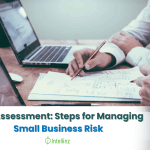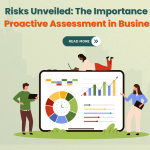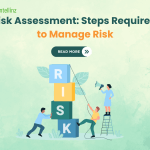Singapore’s allure as a preeminent financial center in Asia continues to attract business owners seeking stability and growth opportunities. However, the influx of diverse enterprises also necessitates vigilant measures to counter potential threats like money laundering and opaque business structures. Enter the Know Your Customer (KYC) due diligence regulations in Singapore, a critical framework ensuring transparency, accountability, and the upholding of global compliance standards. Here are 7 key steps to building trust through KYC Due Diligence.
- The Rise of Singapore’s Financial Fortitude:
Singapore’s well-established reputation as a business hub rests upon its unwavering commitment to providing a stable and conducive environment for commerce. Earning accolades for its ease of doing business and financial prowess, the nation has become a magnet for entrepreneurs looking to set up shop in Asia.
- Taming the Shadows: KYC’s Vital Role:
In the heart of this bustling economy lies the challenge of preventing undesirable entities from exploiting the financial system. Money launderers and businesses masking their true beneficial owners are some of the threats that authorities aim to tackle head-on. The cornerstone of this defense is the KYC framework, a set of rules that mandates businesses to understand and verify the identities of their clients before engaging in transactions.
- Strengthening Standards through ACRA:
The Accounting and Corporate Regulatory Authority (ACRA) takes the lead in Singapore’s quest for financial integrity. Not only does ACRA oversee Corporate Service Providers (CSPs), public accountants, and businesses, but it also aligns itself with the recommendations of global watchdogs like the Financial Action Task Force (FATF). This alliance ensures that Singapore remains in lockstep with international efforts to combat money laundering and terrorism financing.
- Unveiling CSPs: Guardians of Due Diligence:
Corporate Service Providers (CSPs) are the vanguards of this due diligence process. Their services range from the formation of local and foreign companies to providing registered addresses and acting as company secretaries. As intermediaries between businesses and regulators, CSPs play a pivotal role in upholding the KYC standards.
- KYC Documents: The Cornerstone of Trust:
The foundation of KYC due diligence rests on the collection and verification of specific documents. To establish the identity of clients, CSPs typically require identification proof, including valid IDs, residence details, date of birth, and nationality of shareholders and beneficial owners. These documents, accompanied by the company’s business profile and Memorandum and Articles of Association, serve as the bedrock of a trustworthy relationship between businesses and CSPs.
- A Holistic Approach: Beyond the Basics:
The scrutiny doesn’t stop at paperwork. CSPs delve deeper into a client’s background, business activities, income sources, and more. This comprehensive assessment enables them to determine
the risk level associated with the client. Regular inspections and risk assessment procedures further cement the commitment to maintaining a vigilant business landscape.
- The Ethical Advantage: Transparency and Compliance:
While the KYC process may seem arduous, its significance cannot be overstated. Engaging a qualified CSP ensures not only compliance but also aligns your business with Singapore’s ethical and regulatory standards. This proactive approach safeguards your firm from reputational risks and paves the way for seamless operations in an increasingly interconnected global economy.
Conclusion: Safeguarding Tomorrow’s Prosperity Today
As Singapore continues to shine on the global financial stage, it remains steadfast in its commitment to combat illicit financial activities. The KYC due diligence regulations serve as a beacon of transparency and integrity, ensuring that the country’s reputation remains untarnished. By embracing these measures, businesses not only safeguard themselves but contribute to a thriving business ecosystem built on trust, compliance, and the pursuit of excellence.






